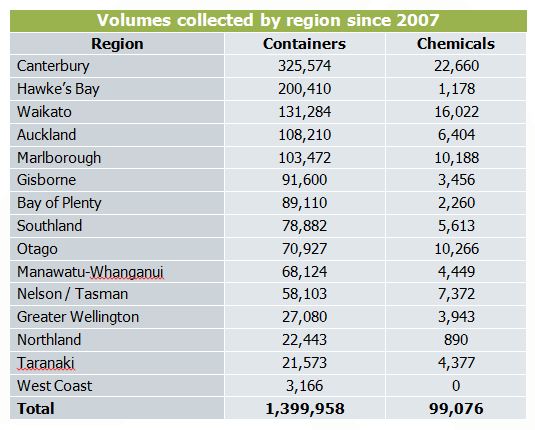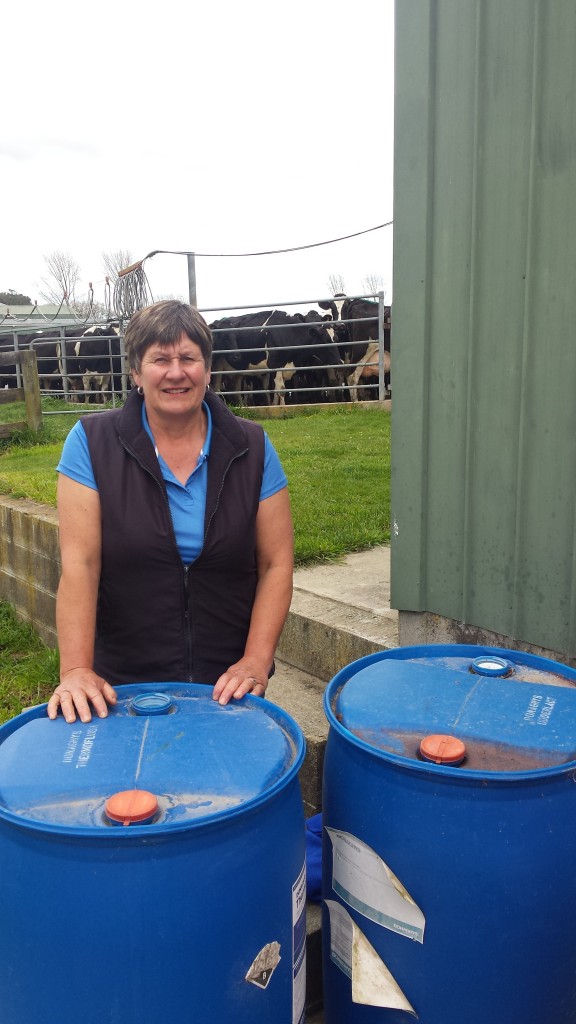Farmers and growers across New Zealand can feel proud of their collective efforts to reduce burning and burying of agricultural plastics, according to rural recyclers Agrecovery.
“We’re now in our tenth year of operations and the numbers prove that farmers will make good environmental choices if they have accessible options for their farm waste,” says Adrienne Wilcock, chair of Agrecovery Foundation and herself a dairy farmer.
“Together with contractors, growers and other users of agrichemicals, farmers have recycled 1.4 million kilograms of plastic containers and safely disposed of 100,000 kilograms of unwanted chemicals.
“In the past these options simply weren’t available, but Agrecovery proves that if it’s there, they will use it.”
Agrecovery provides recycling and recovery for chemicals and their packaging, through a combination of on-property collections, recycling events, and a network of permanent collection sites across the country.
“We started the programme with 18 brands that recognised their responsibility to provide a long term solution for their products’ packaging when the farmer or contractor had finished with it.
“Not only has that number grown to 65 brands, but we’ve also added large drum recovery and chemical collection,” says Wilcock.
These manufacturers and distributors are setting a great example for all New Zealand businesses, not just in the rural sector, by providing a stewardship solution for their customers who have products and packaging to dispose of.
According to Wilcock, a 20 litre container buried on farm will take more than 400 years to break down, while burning it releases harmful dioxins and furans into the air and soil. The alternative, recycling it, saves energy equivalent to 2 litres of petrol per 20 litre container.
“It’s ‘a bit of no brainer’ as some of our recyclers like to say.”
Wilcock says what was acceptable practice in the past will not be acceptable in the future: “We have to find ethical ways of dealing with farm waste which line up with the demands of our export markets, and with farmers’ desire to be good stewards of their land.
“Burning and burying containers when there’s free recycling available just doesn’t stack up.
“To quote Ian Ridge, an arable farmer who recycles at our Methven site: “You’ve got chemical containers that would be a problem and someone is offering to take them away. Why would you not do that?”
“I couldn’t agree more, and at least 11,000 kiwis who use Agrecovery obviously do too,” concludes Wilcock.

